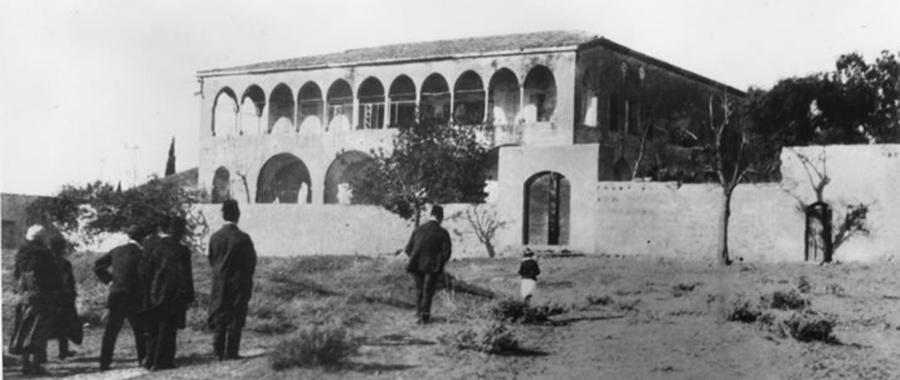The Baha’i Covenant, a pivotal element within the multifaceted framework of Baha’i teachings, serves as a testament to the profound ambition of unifying humankind under divine guidance. This covenant, as articulated through the revelations of Baha’u’llah, embodies the essence of a purposeful alliance designed to transcend temporal limitations, engendering a renewed perspective on the spiritual and material realms.
At its core, the Baha’i Covenant signifies an agreement between the Divine and humankind, wherein the faithful are entrusted with the sacred responsibility to uphold the teachings of Baha’u’llah while fostering an environment of harmony and collective growth. This covenant operates on multiple levels, challenging followers to delve deep into their understanding of spiritual purpose and integrate these precepts into daily living.
Examining the historical continuum from Baha’u’llah to His successors elucidates the precarious nature of leadership and its influence on the Baha’i community. With the establishment of the Universal House of Justice, the covenant becomes particularly salient, as it enshrines the principles of democratic governance in spiritual matters. This governing body, elected by Baha’i members worldwide, symbolizes the embodiment of collective decision-making, uniting disparate voices into a singular expression of community will.
Furthermore, the Baha’i Covenant emphasizes the disjunction between temporal authority and spiritual governance. It posits that while human institutions are ephemeral, the truths revealed by Baha’u’llah are immutable, serving as the bedrock upon which future societies can be constructed. This notion urges individuals to suspend conventional dichotomies of leadership and authority, fostering a paradigm wherein spiritual truths are paramount.
As adherents engage with the teachings derived from this covenant, a profound transformation often ensues. The realization that every action is imbued with divine purpose encourages Baha’is to reconceptualize their role within the broader societal tapestry. It shifts the focus from a static understanding of faith to a dynamic interaction with the world, inspiring curiosity about the myriad ways in which spiritual principles can effectuate positive change.
The covenant articulates a succession of divine guidance, enshrining the notion of progressive revelation. Within the context of Baha’i teachings, this concept suggests that humanity is inextricably tied to a broader spiritual evolution. Each successive prophet, from Moses to Muhammad, heralds a new phase in this unfolding narrative, amplifying the promise of a unified future. The Baha’i Covenant, therefore, represents a climactic juncture in this progression, providing contemporary followers with a unique lens through which to view their spiritual journey.
A poignant aspect of the Baha’i Covenant is its role in fostering an authentic sense of community. By acknowledging the oneness of humanity as a foundational principle, Baha’is are encouraged to move beyond insular perspectives that often plague religious affiliations. This recalibration compels individuals to engage in constructive dialogue, transcending borders and cultural divides. Such engagement fosters empathy and understanding, integral for the establishment of global peace.
Additionally, the teachings of Baha’u’llah encapsulate critical academic inquiries about ethics, justice, and human rights. The covenant champions the inherent dignity of every individual, positing that each person possesses latent potential that can be cultivated. This perspective urges a collective commitment to the betterment of society, extending beyond the confines of mere tolerance to an active advocacy for the marginalized and disenfranchised.
In contemplating the promises embedded within the Baha’i Covenant, one encounters the transformative power of spiritual principles. The covenant inspires curiosity about the intersections of faith, reason, and societal advancement. How might the application of these teachings alter one’s worldview? What ramifications could arise from a commitment to the principles of equality, justice, and unity?
Such inquiries propel Baha’is toward a contemplative exploration of the implications of their beliefs on both personal and communal magnitudes. The dynamic interplay of individual agency within the collective framework elucidates a counter-narrative to the prevailing individualistic paradigms dominant in contemporary societies. This synthesis encourages not only personal reflection but also an outward orientation toward global challenges, igniting a desire to contribute to comprehensive solutions.
Moreover, the Baha’i Covenant asserts the necessity of education as a fundamental principle for societal progress. Education is not merely the acquisition of knowledge; it is the embodiment of virtues that shape character and destiny. By advocating for universal access to education, the covenant underscores the imperative for intellectual and moral development as essential to the pursuit of peace and justice.
In conclusion, the Baha’i Covenant, as articulated through the teachings of Baha’u’llah, invites profound reflection on the nature of divine purpose and humanity’s role therein. It challenges adherents to reassess their paradigms, ignite curiosity within their communities, and embody principles that transcend temporal divisions. The promises interwoven within this covenant offer a transformative framework that not only empowers individuals but also aspires to manifest a collective vision for a harmonious world.
